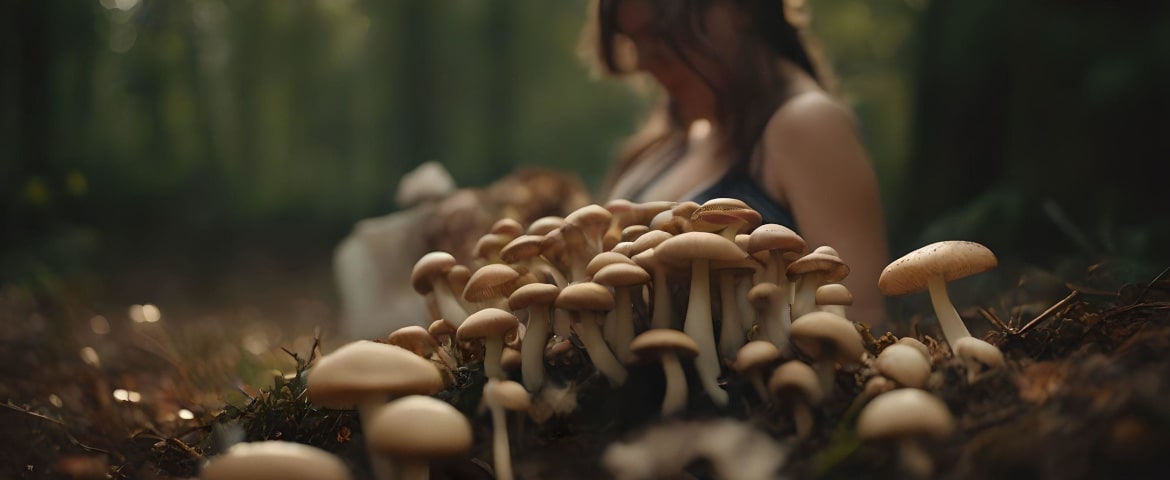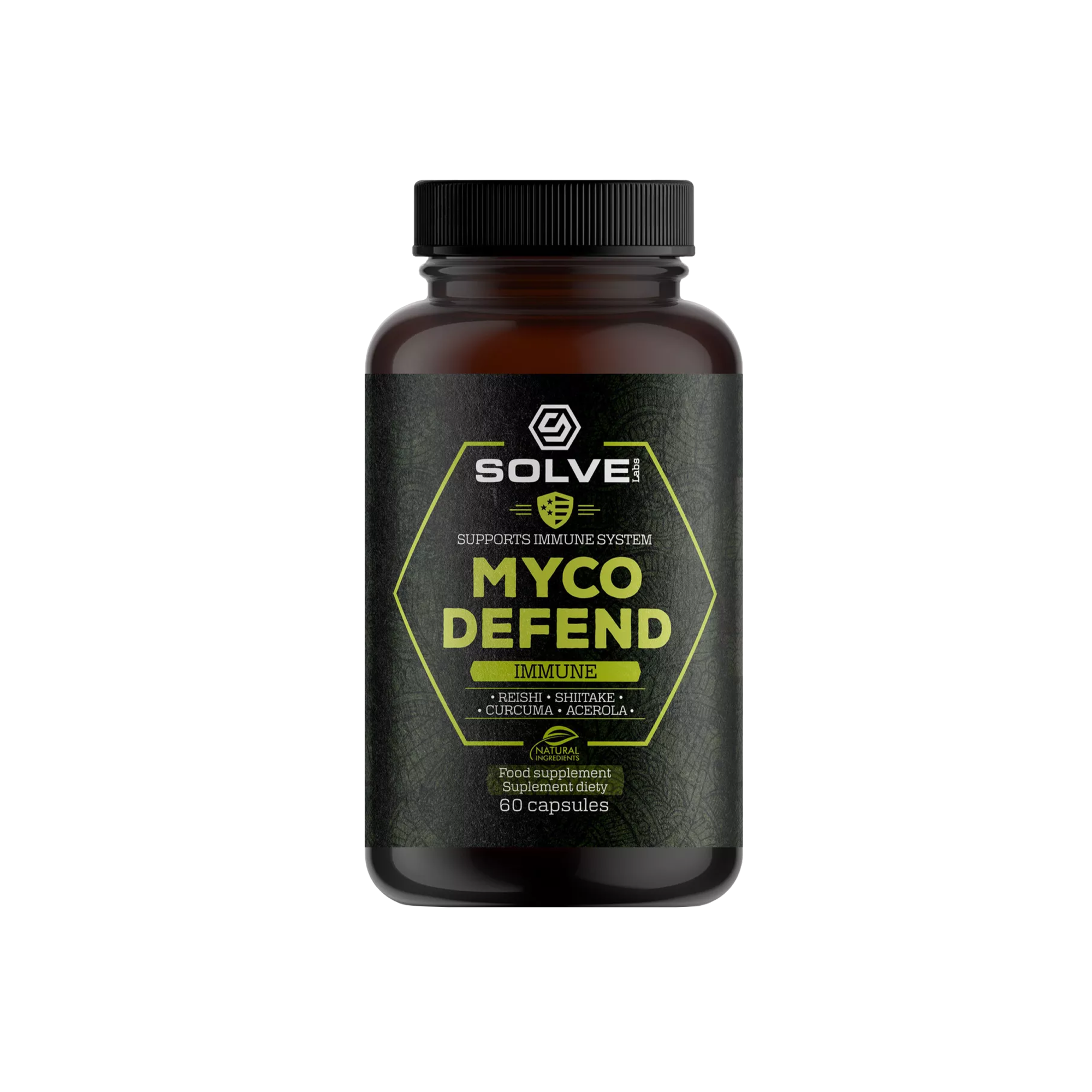
Can you take mushrooms while pregnant?
Can you eat mushrooms during pregnancy? Mushrooms are often questionable, after all, as a society we don't know them as well as plants. In the case of classic forest and cultivated mushrooms, the answer is simple. Yes, you can eat mushrooms during pregnancy , and in the following paragraphs we will develop the topic in more detail. However, the answer is not so easy when the question is about the use of functional mushrooms during pregnancy , such as Reishi , Lion's mane , Cordyceps , or Chaga . After all, we consider these mushrooms in a more medical/health-promoting than culinary perspective. Especially when we are talking about concentrated extracts. Although there is no simple answer, we have collected in one place all the useful data from the scientific literature to clarify the topic as much as possible. Read to the end!
Mushrooms in a Pregnant Woman’s Diet – Why Not!
Mushrooms as a food product and a component of dishes are absolutely not forbidden in the diet of a pregnant woman. The only recommendation is increased vigilance not to eat poisonous species and to prepare mushrooms properly , so that they are well washed and not raw.
What's more, there are indications of the benefits of regularly including mushrooms in the menu during pregnancy . The strongest of these is a study in which women from the pre-pregnancy period to the 20th week of pregnancy were to eat at least 100 g of mushrooms per day. In this case, these were white button mushrooms. This "mushroom diet" was followed by 582 women, and another 580 were the control group.
The main observation was that compared to the control group, the mushroom diet significantly reduced the incidence of gestational hypertension. A reduced risk of preeclampsia, excessive gestational weight gain and gestational diabetes was also observed. The analyses also showed a reduced risk of excessive neonatal weight gain (macrosomia). The authors conclude that including mushrooms in the diet of pregnant women is a good strategy to reduce the risk of gestational hypertension .
It is worth mentioning that gestational hypertension is a condition that affects as many as 10% of pregnant women worldwide. Moreover, the use of conventional hypertension medications during pregnancy is not always safe, as are classic non-pharmacological methods (weight loss, low-sodium diets, intensive physical exercise). The discovery that such a simple procedure as regular consumption of mushrooms can counteract this is a great achievement.
And what about vital mushroom extracts?
Although there is no controversy in the case of classic forest and cultivated mushrooms, there are doubts in the case of mushroom supplements . Firstly, vital mushrooms have more specific active compounds , and secondly, the extraction process concentrates them even more.
In similar cases (e.g. with many herbs) there is usually information that consuming extracts during pregnancy is not recommended, due to the lack of appropriate studies and the lack of certainty that it is safe. This is nothing more than a far-fetched caution . It is exactly the same with functional mushrooms. When there is a lack of evidence of both risk and effectiveness, supplementation is most often discouraged when it does not bring any particular benefits in a given case.

Let's look at animal research
Human studies are always the most valuable and provide the hardest conclusions. However, they are not always possible. This is also the case here. Pregnant women are simply not experimented on, and clinical trials are conducted when they are actually strongly justified and there are no doubts about safety.
In the case of assessing the effects of extracts from vital mushrooms during pregnancy, there are no studies on humans and it is unlikely that this will change. It is therefore worth taking a look at studies on an animal model. There are not many of them either, but the number allows for some analysis.
Study No. 1: Effect of Shiitake mushroom (Lentinus edodes) consumption on pregnant rats.
It was concluded that consumption of Shiitake mushroom during pregnancy is safe and can lower triglyceride levels without affecting maternal body weight, reproductive capacity, biochemical and hematological parameters (except triglycerides), or fetal body measurements.
Study #2: Effect of Shiitake consumption on pregnant diabetic rats.
Shiitake mushroom has been noted to have antioxidant properties that can minimize the damage caused by gestational diabetes and protect fetuses from damage. The mushroom did not reduce severe hyperglycemia in the mother, but promoted an increase in insulin levels, lowered alanine aminotransferase, aspartate aminotransferase, triglycerides and total cholesterol.
Study #3: Effect of Reishi ( Ganoderma lucidum ) consumption on pregnant diabetic rats.
Reishi consumption during pregnancy improved glucose metabolism, reduced lipid peroxidation, and protected fetuses born to mothers with gestational diabetes.
Study No. 4: Effect of administration of Lion's mane ( Hericium erinaceus ) mycelium enriched with erinacin A to pregnant rats.
The effects of 3 different doses were tested and the fetuses were examined for any morphological abnormalities. The results indicated that uterine weight, fetal body weight, number of corpora lutea and implantation sites showed no statistical differences. Lion's mane mycelium was found to be safe and practically non-toxic when consumed during pregnancy.
Study No. 5: The effect of Chaga mushrooms ( Inonotus obliquus ) on the pregnancy outcome of mice infected with Toxoplasma gondii.
Chaga polysaccharides significantly reduced the miscarriage rate, inhibited the decreases in progesterone and estriol levels and the increase in malondialdehyde levels, and increased superoxide dismutase (SOD) and glutathione (GSH) activity in pregnant mice infected with T. gondii. There were also multiple beneficial changes in the cytokine profile. The results suggest that Chaga polysaccharides exert a protective effect against pregnancy disorders caused by T. gondii infection in mice by promoting a balance between the arms of the immune system.
Study No. 6: Effect of Shiitake, Reishi, and Agaricus blazei mushrooms on the glucose curve in pregnant rats.
Reishi and Shiitake mushrooms administered before or after STZ (a pharmacological stimulus that induces diabetes) reduced the glucose level on the glycemic curve in response to a glucose tolerance test. Agaricus blazei was ineffective. According to the authors, this indicates the possibility of using these mushrooms as functional foods that can be used in complementary therapy for gestational diabetes.

Folk tales
In the past, supplementation with plant and mushroom extracts during pregnancy was approached with greater freedom, because knowledge of the impact of their components on fetal development was minimal. The focus was simply more on supporting the health of the mother, without knowing whether a given procedure could also affect the fetus. Our European customs are more about herbs, while functional mushrooms are used more in Asian culture. Anecdotal reports indicate that pregnant Asian women traditionally used the functional properties of mushrooms to support their bodies.
Throughout Asia, there is an anecdotal story about "Reishi babies" . Namely, women who consumed Reishi fruiting bodies during pregnancy, among other things to support immunity, were said to give birth to children with very calm dispositions. Theoretically, this coincides with the effect of Reishi on the people who consume it. However, there is no known confirmation in the professional literature that consuming Reishi during pregnancy could affect the character of the child in the future.
Beware of drug interactions
Sometimes the advantage of a supplement turns into a problem when certain medications are taken at the same time. For example, the previously described Reishi improved glucose parameters in pregnant animals, but when glucose-lowering medications are used at the same time, the effect may be intensified, which must be taken into account when configuring the entire treatment regimen. Other vital mushrooms also have a similar effect on glucose tolerance, which results from their general compositional characteristics.
Summary
Can you use vital mushroom extracts during pregnancy? Unfortunately, there is no definitive and universal answer. Unless there is a clear need, it is usually discouraged out of an abundance of caution.
Preclinical studies conducted so far on animal models have generally shown positive effects – no toxicity and possible health benefits, mainly in terms of reducing the risk of gestational diabetes and hypertension . Based on theory, many components contained in vital mushrooms could bring benefits during pregnancy, including beta-glucans and ergothioneine. However, the lack of clear indication in clinical studies that supplementation is safe and not associated with toxicity always leaves a shadow of doubt.
If there are indications and supplementation could bring clear benefits, it is best to discuss the possibility of including a mushroom supplement with your doctor , especially if you are taking any medications at the same time.
You can safely use functional mushroom extracts after you have finished breastfeeding. Motherhood can be physically and emotionally taxing, and functional mushrooms can provide invaluable support.










Leave a Comment